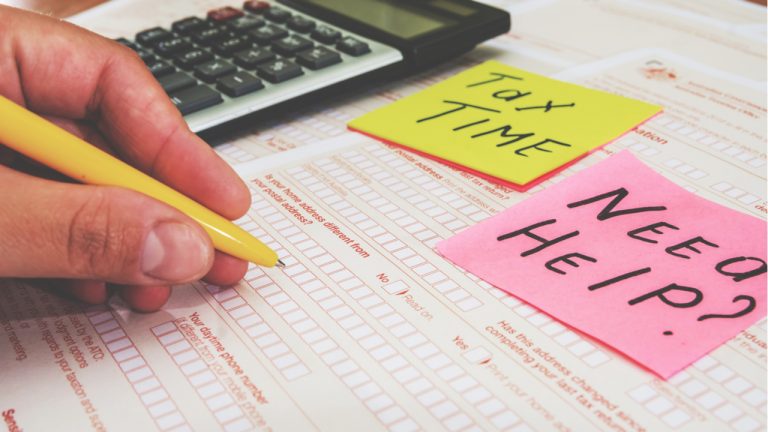 The Australian Federal Police have taken a major step against organized crime by seizing $9.3 million in cryptocurrency. The operation uncovered a secret encrypted communication platform, Ghost, leading to the arrest of its alleged mastermind. Through digital forensics, authorities cracked the suspect’s crypto accounts. With previous operations yielding millions in seized assets, the ongoing investigation […]
The Australian Federal Police have taken a major step against organized crime by seizing $9.3 million in cryptocurrency. The operation uncovered a secret encrypted communication platform, Ghost, leading to the arrest of its alleged mastermind. Through digital forensics, authorities cracked the suspect’s crypto accounts. With previous operations yielding millions in seized assets, the ongoing investigation […]

“I am actively telling people they are best ignoring it,” Cadena Legal’s founder tells Cointelegraph after controversial new tax guidance on DeFi was released in November.
Australia's controversial new guidelines for cryptocurrency taxation should be ignored for being unclear and should probably be seen as “toilet paper,” according to an Australian law firm.
On Nov.
In a Nov.
If you hate the ATO's recent web guidance on crypto, read this:https://t.co/JA5GYsDVFt
— Harry Dell taxpapi.eth (@harrydelltaxlaw) November 27, 2023
The law firm noted there is a lot of confusion about what Australians can do with DeFi without triggering a capital gains tax (CGT).
“If the ATO released a public ruling, we could all rely on that, but instead we have this non-binding nonsense which makes everyone more confused and will probably reduce willing tax compliance by the Australian crypto community.”
Dell, who previously worked at the ATO auditor between 2017-2019, said he’s even telling his clients to ignore the rules for the time being:
“[It] is inciting panic in the Australian crypto community. I am actively telling people they are best ignoring it and get their own advice.”
One crypto tax pundit, however, warned that ignoring ATO guidelines could be risky, arguing that while they aren’t legally binding rules, an investor may still need to pay a lawyer to fight the ATO should they determine it falls foul of their guidance.
On Nov. 21, Cointelegraph attempted to find out from the ATO whether transferring funds via a bridge or staking Ether (ETH) on a liquid staking protocol such as Lido constituted a capital gains tax event.

“Remember, you can’t offset your crypto losses against your salary and wages,” said ATO assistant commissioner Tim Loh.
The Australian Taxation Office (ATO) has outlined crypto capital gains as one of four key areas of focus in 2022.
A capital gain or loss refers to the price difference between the time an asset was purchased and the time it was sold. The percentage owed to the ATO varies between income brackets and duration of ownership, but in general, the rate is reduced for assets held longer than 12 months.
The ATO, which has fired off many warnings to crypto investors over the past few years, has also directly mentioned nonfungbile tokens (NFTs) as an asset class it will be scrutinizing for correct tax reporting.
According to a May 16 announcement, alongside capital gains from crypto, property, and shares, the ATO will also look at record-keeping, work-related expenses, and rental property income/deductions.
With the prices of most crypto assets suffering from major losses in 2022, the ATO noted that any sold crypto asset, including NFTs needs to have a calculated capital gain or loss recorded with it, and will be “taking firm action” to deal with taxpayers who try to falsify their records
ATO assistant commissioner Tim Loh also suggested that the taxation body already has a fair idea of people’s investment activity, but urged everyone to keep diligent records to avoid any penalties, stating:
“While we receive and match a lot of information on rental income, foreign-sourced income, and capital gains events involving shares, crypto assets, or property, we don’t pre-fill all of that information for you.”
Related: Aussie crypto ETFs see $1.3M volume so far on difficult launch day
Loh also went on to note that the ATO has seen a significant rise in local crypto investors who may not be aware of the correct reporting methods:
“Crypto is a popular type of asset and we expect to see more capital gains or capital losses reported in tax returns this year. Remember you can’t offset your crypto losses against your salary and wages.”
“Through our data collection processes, we know that many Aussies are buying, selling, or exchanging digital coins and assets so it’s important people understand what this means for their tax obligations,” he added.

“Our main concern is that many taxpayers believe their cryptocurrency gains are tax-free or only taxable when the holdings are cashed back into Australian dollars,” said the ATO commissioner.
The Australian Tax Office (ATO) says it can’t rely on crypto investors to keep track of their crypto transactions and profits — even though most investors try their best.
Speaking at the 14th International ATAX Conference on Tax Administration conference on Nov. 23, ATO commissioner Chris Jordan stressed that many new crypto investors may not entirely understand their tax reporting obligations:
“In a sector that is growing rapidly with new investors, we can’t rely on taxpayers knowing they need to keep records of their investment income and capital gains and disclose it on their tax returns.”
“Our main concern is that many taxpayers believe their cryptocurrency gains are tax-free or only taxable when the holdings are cashed back into Australian dollars,” he added.
Jordan explained that the ATO has been working on ways to “nudge” people in the right direction such as pre-filling data on tax returns to prompt crypto users to report their investments.
The commissioner also said the ATO has ramped up its trading data matching capabilities in 2021 by sourcing information from cryptocurrency demand-side platforms (DSPs), share registries and brokers.
“We’ve expanded our data matching protocols to get more data from third parties to assist with emerging investments like cryptocurrency.”
He added that, “We are working hard to improve the way we collect, manage, share, and use data, but we are just scratching the surface.”
Related: Reserve Bank warns Aussies over punting on ‘fad driven’ cryptocurrencies
Jordan did note however that “most people do the right thing” as tax reporting compliance, or the “tax performance” of individuals and small businesses in Australia is high with “little or no intervention” from the ATO at 94% and 87% respectively.
A firm that the ATO may call on in future is the Commonwealth Bank of Australia’s partner Chainalysis.
On Nov. 24, Chainalysis’ country manager in Australia and New Zealand Todd Lenfield told the Australian Financial Review that his firm is hoping to provide key expertise to AUSTRAC and the ATO.
“We want to have conversations with AUSTRAC about what they are looking to regulate and explain to the tax office the lessons that can be learned from what the IRS is doing. We can take experience we have got in the space, and provide a local flavor,” he said.
The firm currently provides blockchain analysis services for the U.S. Federal Bureau of Investigation and Internal Revenue Service, it also investigated Russia-based crypto business Suex OTC which was targeted by the U.S. Treasury Department in September over facilitating transactions for ransomware payments.
 Australia’s revenue service has reminded a growing number of crypto investors about their tax obligations. Rejecting the common misconception that crypto gains are only taxable when coins are cashed back into dollars, the tax office is going to prompt hundreds of thousands of taxpayers to report profits and losses from their cryptocurrency transactions. Tax Office […]
Australia’s revenue service has reminded a growing number of crypto investors about their tax obligations. Rejecting the common misconception that crypto gains are only taxable when coins are cashed back into dollars, the tax office is going to prompt hundreds of thousands of taxpayers to report profits and losses from their cryptocurrency transactions. Tax Office […]